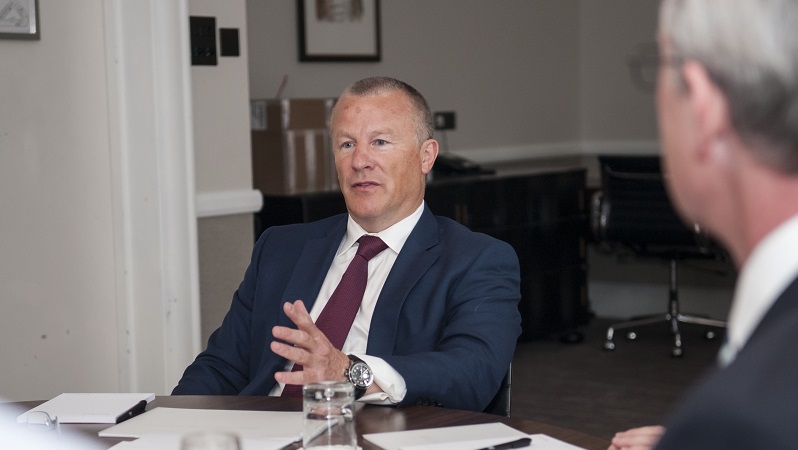The fact Neil Woodford was able to win advisers onside to stick with his suspended fund is not surprising but advisers who were predicting a comeback have been told they were “kidding themselves”.
Portfolio Adviser revealed that Woodford and his team had been blindsided by Link’s decision to yank his equity income mandate and were counting on £1bn of adviser money sticking with the fund when it re-opened in December.
The former star manager had been conducting roadshows in anticipation of the suspension being lifted.
GBI2 managing director Graham Bentley notes the fund would have lost around £1bn upon re-opening from Kent County Council withdrawing its £250m and Hargreaves yanking £600m from its multi-manager range.
“But it wouldn’t have surprised me if money had stuck,” he says. “If only for people who maybe aren’t that clear about what’s going and it’s a small amount of their total investment so they’re happy to leave it to see if it recovers. I could understand that.
“The problem for Link was that if those redemptions were again overwhelming in December, that they had to close the fund again and then that’s another six months added. Clearly, Link thought that was a risk.”
Shore Financial Capital director Ben Yearsley says some advisers might have stayed loyal to Woodford if they assumed the worst was over.
“You could argue it was a very cheap portfolio and there was a reason to stick with it because you had all this pain and actually, there’s a lot of value in there if you believe Neil. He’s been proven right a lot in the past.”
The timing of the Woodford Equity Income’s implosion is ironic considering UK domestic stocks, which the fund had a bias toward, have rallied in the last week, Yearsley adds.
‘Woodford wasn’t the only one kidding himself’
But CWC Research founder Clive Waller finds it “staggering” that there were advisers on various media outlets saying that Woodford’s funds could make a comeback.
“Woodford wasn’t the only one kidding himself,” Waller says. “He had sold all the good stuff and held all the crap. There was always going to be a huge sale when the closure ended. To say he could come back was like saying a horse could win the derby starting four furlongs behind the rest and with only three legs.
“It is frightening that advisers think such stuff; it is more frightening that they are so naive that they publish such nonsense.”
Adviser cheerleaders face less scrutiny than HL and SJP
Robin Powell, editor of The Evidence Based Investor, notes that advisers who championed Woodford have had it easier than Hargreaves Lansdown and St James’s Place, both of which have taken reputational hits for their ties with Woodford.
“So far it’s Hargreaves Lansdown that has borne the brunt of the backlash over Woodford,” says Powell.
“In my view, though, financial advisers who exposed their clients to the fund have got off lightly — particularly those high-profile advisers who helped to promote Woodford in the trade and mainstream media.
“Advisers have a responsibility to act in their clients’ best interests. They know, or at least should know, that past performance tells us very little of any use about future performance. They should know that only a tiny fraction of funds beat the market over the long term on a cost- and risk-adjusted basis, and that identifying those very few winners in advance is all but impossible. So why were they encouraging their clients to take a punt on Neil Woodford?”
Hindsight is 20/20
Bentley says using the blow-up of one active manager to tar the whole of the advice industry is unfair.
“And it’s easy to be say how brilliant you were after the fact now that it is a carcass they’re picking over rather than a live animal,” says Bentley.
To say people shouldn’t have recommended Woodford’s fund in the first place is “plain nonsense” considering he was one of the most successful fund managers in the UK at the time of launch, says Bentley.
“The fact of the matter was with a track record like he had, frankly, you’d be nuts not to have recommended him at the start.”
Yearsley says the fact he moved clients out of Woodford Equity Income two years ago doesn’t mean anything.
“At the end of the day, there’s no right or wrong with investment, it’s all opinion. You only know in hindsight what was the right or wrong decision,” he says. “I made the decision to get out two years ago for reasons I felt were right at the time and now I’ve been vindicated. That doesn’t mean I was going to be right.”










